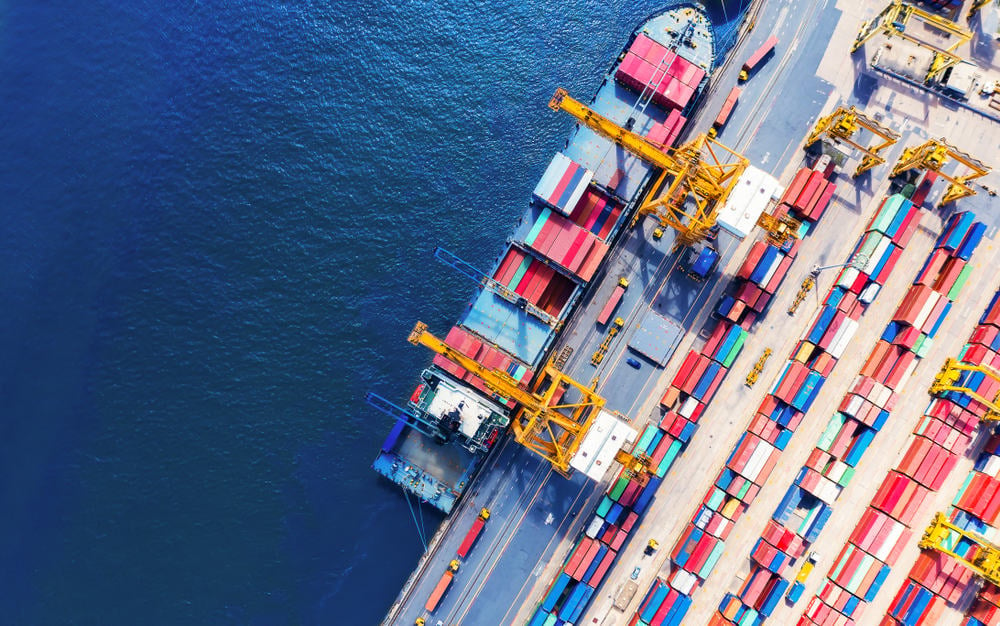The world is confronting one of the greatest health crises of a generation, one that significantly impacts the worldwide economy, international trade, and global shipping. Our thoughts remain with the communities and individuals, including healthcare workers, first responders, and supply chain professionals, who have been affected by the COVID-19 crisis.
At MTS Logistics, we understand our duty as an essential provider of transportation and logistics services worldwide. In today’s environment, we are focused on helping our clients navigate the latest shipping challenges, in a smart and effective way, providing the latest shipping tools, services, market data, and specialized shipping expertise.
Thanks to our procedures, cloud-based technical tools and capacity in place, we continue our operations and customer service normally.
Below is an overview of the current issues with air and ocean freight in the market.
With each new day, we provide greater clarity for our clients and customers on how COVID-19 is affecting global shipping, and the ways they can navigate uncertain waters in this volatile times.
Air Freight
COVID-19 is heavily disrupting the airline industry. IATA is estimating that the airline industry may lose more than $350 billion in revenue. As airlines are one of the most cash flow-dependent industries, they are having a hard time getting through this crisis.
The survival instincts of airlines, and the airline corporate reaction, is a new focus and a potential structural change that centers around flying more commercial cargo rather than passengers. We now see a whole set of passenger airlines carrying more cargo on the upper deck of their airplanes, keeping their fleet in the air, and keeping their employees on their payroll. However, due to the reduced amount of flights, we are experiencing serious space issues and are seeing more airlines focusing on adapting to move more cargo to fulfill the demand for expedited protective equipment shipments all around the world.
Transpacific air freight eastbound rates saw an unprecedented increase over the past month. This increased demand in air freight is also taking a toll on airline terminals that are handling cargo. They are experiencing serious bottlenecks that are affecting transit times worldwide.



Ocean Freight
COVID-19 is affecting the ocean freight industry differently, but the main themes are inconsistency and changes in demand. Shipping lines and carriers responded to reduced demand by cutting capacity up to 50%. Blank sailings in the Transpacific shipping lane is the new normal. The weekly sailing schedules from China, Malaysia, and Vietnam have been reduced to bi-weekly, and even every 21 days. This makes supply chain planning very difficult for shippers worldwide. Ningbo and Shanghai seem to be affected from this space situation the worst so far. Most of the vessels for Transpacific routes have been overbooked weeks in advance, and premium ocean freight services that guarantee space and equipment are on the rise for shippers that are willing to pay for it. These expedited premium ocean freight services are highly in demand as well for those who cannot afford to risk roll overs, as we even see “subject to roll over” space getting overbooked.
While U.S imports are decreasing on a year-over-year basis, the ocean freight market is experiencing a general rate increase and space crunch because of these factors. One aspect we should keep in mind is that it is advantageous for carriers and shipping lines to sign BCO fixed yearly contract rates while the market is strong, and currently market is very strong. What we see in the ocean freight market in the U.S. is that cargo origin started to gravitate towards southeast Asia, and many shippers are preferring to route shipments via Gulf and East Coast ports as they are better suited and gaining more shares compare to West Coast ports. Thailand, Vietnam, and Cambodia are still experiencing a greater growth in trade to the U.S. compared to China.
Ocean Carriers’ Transpacific Space Situation

Latest Trans-Pacific Service Void/Blank Sailings


Throughout our history, MTS Logistics has built its reputation on being there for our clients, customers, vendors, and communities in the most critical, and volatile times.
This unprecedented environment is no different. We are following the market and global trends in shipping and will continue helping clients understand and plan how the remainder of the year and the recovery in global economy, trade, and shipping will take place. Until then, do not let anyone tell you do not have options. Reach out to us today to learn the ways which we can help you, get the latest information available, and latest shipping services in the market.





5
5
Comments are closed.